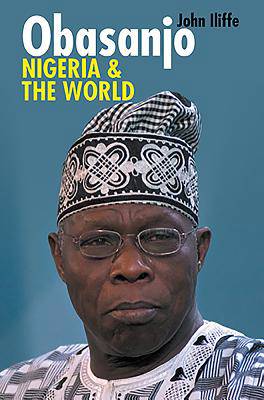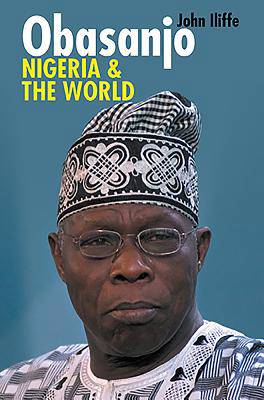
Bedankt voor het vertrouwen het afgelopen jaar! Om jou te bedanken bieden we GRATIS verzending (in België) aan op alles gedurende de hele maand januari.
- Afhalen na 1 uur in een winkel met voorraad
- In januari gratis thuislevering in België
- Ruim aanbod met 7 miljoen producten
Bedankt voor het vertrouwen het afgelopen jaar! Om jou te bedanken bieden we GRATIS verzending (in België) aan op alles gedurende de hele maand januari.
- Afhalen na 1 uur in een winkel met voorraad
- In januari gratis thuislevering in België
- Ruim aanbod met 7 miljoen producten
Zoeken
Omschrijving
This first full account of Obasanjo's life from 1937 to 2010 combines an analysis of an exceptionally vital and complicated man with a history of an exceptionally vital and complicated country. Olusegun Obasanjo was Nigeria's military head of state (1976-9) and President (1999-2007). His career is made the focus for a history of Nigeria's first fifty years of independence (1960-2010) and of African continental affairs during the same period (Obasanjo having been an active opponent of apartheid and an architect of the African Union).
The most important African leader of his generation, Obasanjo has had an extraordinarily diverse career as soldier, politician, statesman, farmer, author, political prisoner, Baptist preacher, and family patriarch. As a soldier, he secured the victory in Nigeria's civil war. As military head of state, he returned the country to civilian rule. For the next 20 years he was ceaselessly active, before spending three years as a political prisoner.
Released from prison, Obasanjo served Nigeria as elected President from 1999 to 2007, until his growing authoritarianism and his manipulation of his successor's election ruined his reputation among many Nigerians. This book argues that the controversial end to his presidency must be understood in the light of his earlier career.
The author has used mainly published sources, especially Nigerian newspapers and political memoirs, as well as recently released FCO documents in Britain. John Iliffe is a Fellow of St John's College, Cambridge. He retired as Professor of African History at Cambridge in 2006 and has published widely on African history including: A Modern History of Tanganyika; The Emergence of African Capitalism; The African Poor: A History; Africans: the History of a Continent; Honour in African History and The African Aids Epidemic: A History. Nigeria: HEBN [PB]
The most important African leader of his generation, Obasanjo has had an extraordinarily diverse career as soldier, politician, statesman, farmer, author, political prisoner, Baptist preacher, and family patriarch. As a soldier, he secured the victory in Nigeria's civil war. As military head of state, he returned the country to civilian rule. For the next 20 years he was ceaselessly active, before spending three years as a political prisoner.
Released from prison, Obasanjo served Nigeria as elected President from 1999 to 2007, until his growing authoritarianism and his manipulation of his successor's election ruined his reputation among many Nigerians. This book argues that the controversial end to his presidency must be understood in the light of his earlier career.
The author has used mainly published sources, especially Nigerian newspapers and political memoirs, as well as recently released FCO documents in Britain. John Iliffe is a Fellow of St John's College, Cambridge. He retired as Professor of African History at Cambridge in 2006 and has published widely on African history including: A Modern History of Tanganyika; The Emergence of African Capitalism; The African Poor: A History; Africans: the History of a Continent; Honour in African History and The African Aids Epidemic: A History. Nigeria: HEBN [PB]
Specificaties
Betrokkenen
- Auteur(s):
- Uitgeverij:
Inhoud
- Aantal bladzijden:
- 340
- Taal:
- Engels
Eigenschappen
- Productcode (EAN):
- 9781847010278
- Verschijningsdatum:
- 20/01/2011
- Uitvoering:
- Hardcover
- Formaat:
- Genaaid
- Afmetingen:
- 157 mm x 236 mm
- Gewicht:
- 725 g

Alleen bij Standaard Boekhandel
+ 418 punten op je klantenkaart van Standaard Boekhandel
Beoordelingen
We publiceren alleen reviews die voldoen aan de voorwaarden voor reviews. Bekijk onze voorwaarden voor reviews.









